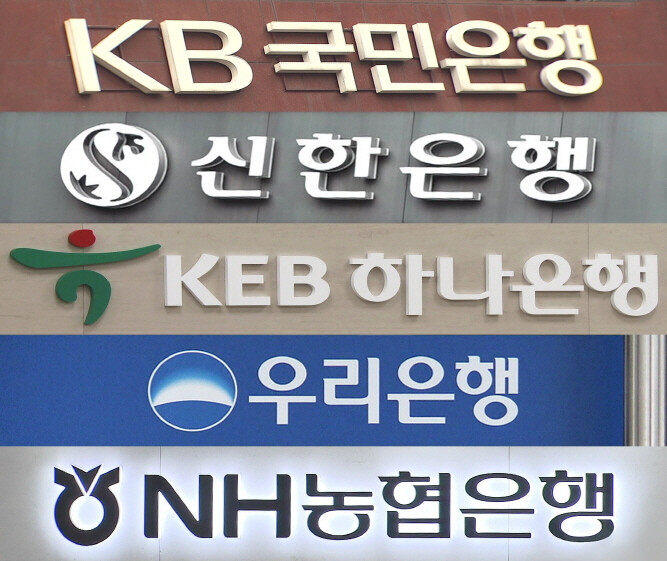
Seoul, South Korea – South Korea's five largest commercial banks experienced a notable slowdown in household lending last month, as growth in outstanding loans moderated to approximately 800 billion won. While banks had been actively curbing loan growth since October last year in response to rapid increases, the overall balance of household loans still surged by nearly 42 trillion won in 2023.
According to data released on [Date] by the banking industry, the combined household loan balance of KB Kookmin, Shinhan, Hana, Woori, and NH Nonghyup banks stood at 734.135 trillion won at the end of last month, marking a modest increase of 796.3 billion won from the previous month.
Compared to the end of 2023, when the balance was 692.409 trillion won, the annual growth amounted to 41.726 trillion won.
Mortgage Loans Lead the Charge
Mortgage loans continued to be the primary driver of household lending growth, increasing by 1.47 trillion won to reach 578.463 trillion won at the end of last month. Throughout 2023, mortgage loans grew by a substantial 48.571 trillion won, accounting for a significant portion of the overall increase in household lending.
While mortgage loan growth peaked in August 2023 at 8.911 trillion won, it gradually slowed down in subsequent months due to rising interest rates and tighter lending standards.
Personal Loans and Other Loan Categories
In contrast, personal loans experienced a decline of 486.1 billion won, marking the first decrease in five months. The outstanding balance of personal loans stood at 103.603 trillion won at the end of last month, down 2.882 trillion won from the end of 2023.
Group loans and home equity loans also showed declines, while home equity loans saw a modest increase of 117.3 billion won.
Deposits and Liquidity
Total deposits at the five major banks decreased by 2.047 trillion won to 2,048.334 trillion won at the end of last month, primarily due to a decline in time deposits. However, compared to the end of 2023, deposits increased by 96.959 trillion won, reflecting the influx of funds into banks ahead of anticipated interest rate cuts.
Time deposits declined by 21.128 trillion won, while regular savings increased by 3.872 billion won. Demand deposits, including money market deposit accounts (MMDAs), surged by 23.0 billion won to reach 631.233 trillion won.
[Copyright (c) Global Economic Times. All Rights Reserved.]





























